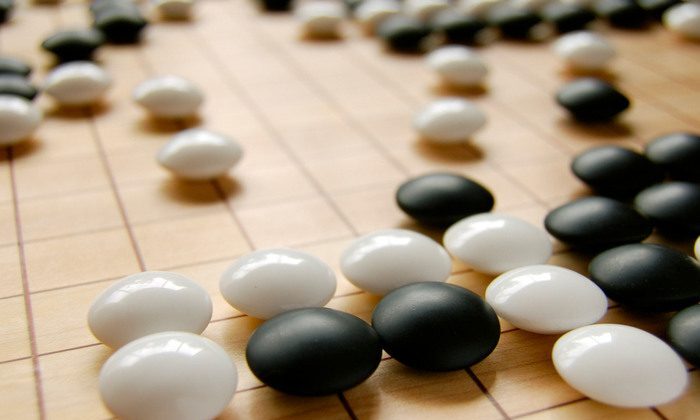My first encounter with the games Go and karuta were through two popular anime series, Hikaru No Go and Chihaya Furu. These games have a steep learning curve, but the return on investment is high. They not only stimulate your mental capacity, but also provide a vivid window into the history of Japan.
Through Go and karuta, I have learned about the legendary games of Honinbo Shusaku (such as the “Ear Reddening Game”), 100 beautiful Japanese poems and their history in karuta, and important lessons that can be applied to business situations.
Several books have been written on the application of Go strategies in business, such as Miura Yasuyuki’s Go, an Asian Paradigm for Business Strategy and Troy Anderson’s The Way of Go: 8 Ancient Strategy Secrets for Success in Business and Life. I would like to share some of my own thoughts in this area:
1. Thinking unconventionally
To succeed in business, you have to locate windows of opportunity that challenge conventional wisdom. A great example is a famous Go match between Lee Sedol and Hong Chang-sik during the 2003 KAT cup. During the game, Lee started the game with a “broken ladder” formation, which is traditionally thought to be a mistake that will surely lead to defeat. However, Lee defied conventional wisdom and used this formation to force his opponent into submission.
2. Strategizing & prioritizing
In Go and karuta, the playing field is wide, and there are multiple situations occurring at any one time. You need to constantly strategize, prioritize, and focus on your next move. The same theory applies in business situations. You will need to conduct regular environmental scans, identify opportunities and threats, and formulate action plans to address them. More importantly, since you will always have limited resources and time, you will need to prioritize your actions. Failure is almost certain if you try to overstretch your resources and be everything to everyone at the same time.
3. Admitting defeat & moving on
Success and defeat are part of the game. It is important to learn how to admit defeat when it is apparent and move on to the next challenge. In business, it is easy to fall into the trap of sunk costs where you will continue to escalate your investments despite market information which indicates that the costs will far outweigh the benefits. In these situations, it is always better to cut your losses and salvage whatever is left for the next investment.
4. Learning, learning, & more learning
Similar to any other competitive sport, Go and karuta are complex games that demand hours and hours of practice and studying. To succeed in business, we need to constantly acquire new knowledge and skill sets in this rapidly evolving global marketplace. If we become content with the present situation and stop learning, we will stop growing, stop looking for new opportunities in the market, and face potential obsolescence.



